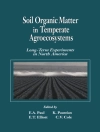Die Environmental Humanities als sich international etablierendes Forschungsfeld finden zunehmend auch im deutschsprachigen Raum Beachtung. Sie bieten einen transdisziplinären Rahmen, in dem das Umweltwissen der Geistes- und Sozialwissenschaften gebündelt und in seinem Beitrag zur ökologischen Umgestaltung der Gesellschaft erforscht wird. Der Band versammelt Essays aus den Disziplinen Geschichte, Humangeographie, Philosophie, Literatur- und Kulturwissenschaften, Soziologie, Kommunikationswissenschaften und Wirtschaftswissenschaften. Er rückt die ethischen, politischen, kulturellen, sozialen, literarischen und künstlerischen Dimensionen der Mensch-Umwelt-Beziehung in den Blick, die für das Verständnis der historischen Ursachen und der gegenwärtigen Herausforderungen der Umweltkrise ebenso unabdingbar sind wie für die Entwicklung nachhaltiger Zukunftsperspektiven.
The Environmental Humanities are a dynamic international research field, which is gaining attention in the German-speaking world as well. They offer a transdisciplinary framework for bringing together the environmental knowledge of the humanities and social sciences in order to assess and communicate their contribution to the ecological transformation of society. The volume features essays from a broad spectrum of disciplines including history, human geography, literary and cultural studies, philosophy, sociology, communication science and economics. It illuminates the ethical, political, cultural, social, literary and artistic dimensions of the relationship between humanity and the environment, which are indispensable for our understanding of the historical roots and contemporary challenges of the ecological crisis as well as for the development of sustainable perspectives for the future.
Yazar hakkında
Prof. Dr. Hubert Zapf ist Amerikanist und einer der Leiter der Environmental Humanities an der Universität Augsburg. Seine Forschungsschwerpunkte liegen im Bereich Ecocriticism und Cultural Ecology. Mit seinem kulturökologischen Ansatz beschreibt er die transformative Funktion von Literatur und kultureller Kreativität in der Gesellschaft.












